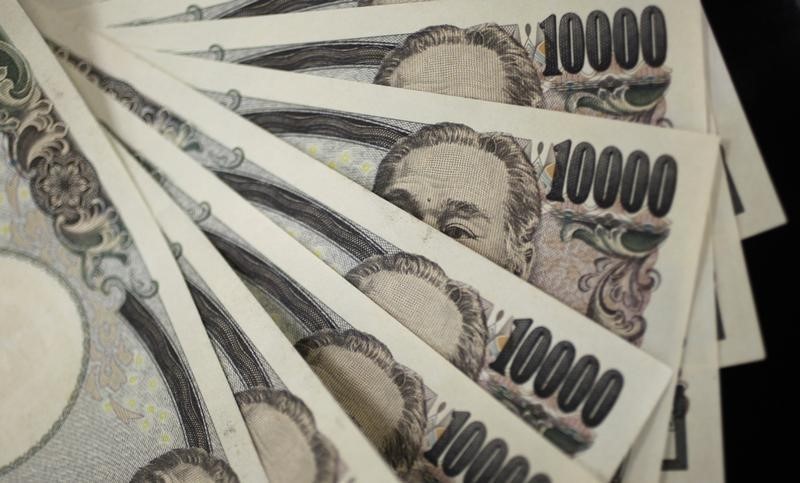By Ambar Warrick
Investing.com-- Most Asian currencies rose slightly on Thursday, benefiting from weakness in the dollar as traders awaited more cues on monetary policy from Federal Reserve Chair Jerome Powell this week.
The South Korean won rose the most among its Asian peers, adding 0.3% after the Bank of Korea raised interest rates as expected.
But the won hovered just above lows last seen in 2009, as the central bank flagged slowing economic growth and higher inflation readings in 2022.
The Japanese yen recovered slightly to the dollar. But weekly data showed that foreign investment in the country's stocks and bonds was dwindling amid sluggish economic growth and surging inflation.
Bank of Japan board member Toyoaki Nakamura said on Thursday that recent headwinds to the Japanese economy from rising commodity prices and COVID-19 cases meant that the central bank was unlikely to raise interest rates any time soon.
The scenario is largely negative for the yen, as a widening interest rate gap between Japan and other economies saw a drastic devaluation of the currency this year. Japanese inflation hit a more-than seven-year high in July.
The Chinese yuan rose 0.1% after the People’s Bank of China set a stronger daily fixing. But the currency traded around two-year lows as growing concerns over the Chinese economy dented sentiment.
China announced more stimulus measures on Wednesday to shore up economic growth. But a debt-saddled real estate sector, stubborn COVID lockdowns and a brewing energy crisis appear likely to weigh on a recovery.
The yuan has fallen sharply this year as a series of COVID-19 lockdowns ground Chinese economic activity to a halt. Traders are now wary of yuan exposure given that Beijing has refused to scale back its strict zero-COVID policy.
Broader Asian currencies advanced, while the dollar index retreated ahead of Powell’s address to the Jackson Hole Symposium on Friday. Dollar index futures sank 0.2%.
But while the dollar retreated on Thursday, it remained pinned around 20-year highs, as investors broadly expected Powell to reiterate the Fed’s hawkish stance.
A slew of Fed officials have signaled that the central bank is unlikely to scale back its pace of interest rate hikes, given that inflation is running at 40-year highs. 61% of traders now expect the Fed to hike rates by 75 basis points in September.
